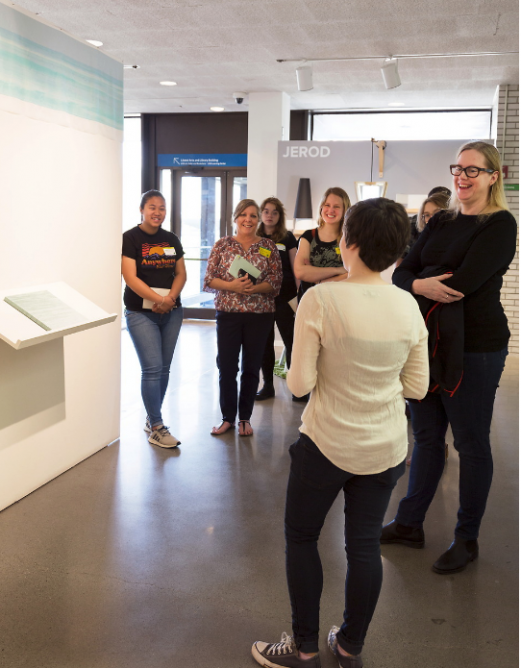People working outside the world of design, particularly those in business, have discovered the incredible power of Design Thinking. Harvard Business Review recognized the value of Design Thinking 10 years ago, and continues to explore why it works today. Forbes has come out with several articles on the benefits Design Thinking, including as a leadership philosophy. The Wall Street Journal, The Economist, and the Financial Times all agree that Design Thinking is key to business success and that it’s here to stay.
So what comes after Design Thinking? What else can non-designers glean from the designer’s toolkit? Next up: The Design Critique (“crit” for short).
What is a Design Critique? It “refers to analyzing a design, and giving feedback on whether it meets its objectives. A design critique usually manifests as a group conversation with the ultimate goal of improving a design.”
Crits are a foundational element of design education and practice. Art and Design students may dread crits, but successful art and design practitioners love them, at least good ones.
Some of the students entering MCAD’s MA in Sustainable Design program don’t come from art and design backgrounds (we have people from business, communications, environmental science, anthropology, engineering…). Those that do come from A+D backgrounds may wonder how to achieve the benefits of a crit in an online asynchronous format. So in our Online Orientation workshop, we include a module on Discussion and Critique.
Beyond covering How to Give and Receive Critique Well, we discussed the deeper value of effectively engaging in both sides of the crit process. What emerged from our discussion was the importance of truth and trust, empathy for yourself as well as for others, pausing and reflecting, communicating effectively and with specifics, listening and being listened to, understanding context and focusing on the bigger goal.
It is clear from our students’ experiences and observations that cultivating the characteristics and conditions conducive to effective critiques results not only in better designs, but also better people — better designers, better collaborators, better innovators, and better leaders.
FastCompany has picked up on this, recommending using crits as a way to build a culture of innovation. Harvard Business Review identified the benefits of the crit “as a means to seeking improvement on a work along a multitude of subjective axes.” I’m guessing the other big players in the business media will catch on and catch up soon.
If you’ve reaped the benefits of Design Thinking, consider learning and leveraging the value of the Design Crit. If you’re interested in becoming a better designer, a better collaborator, a better innovator, and a better leader, take a look at what our MA in Sustainable Design program has to offer you. We have an informational webinar coming up soon.

